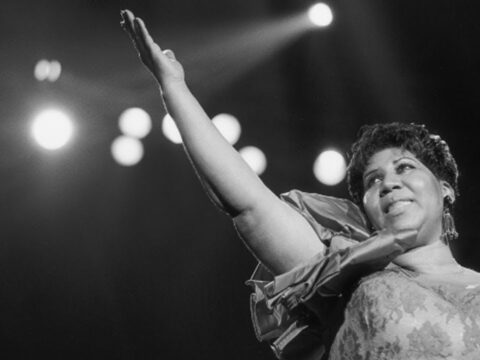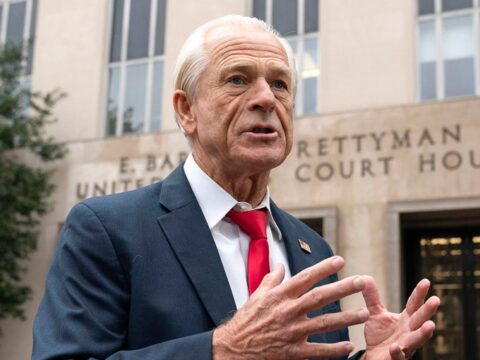JERUSALEM — Families of U.S. citizens being held hostage by Hamas since it’s brutal terror attack in southern Israel six months ago expressed frustration this week that mediation talks keep stalling and have failed to bring their loved ones home. Some also said they are disappointed that political interests seem to be a higher priority than saving lives.Â
“We live in a different galaxy, all of us families and every day is a decision to get up and pretend to be a human,” Rachel Goldberg-Polin, mother of Hersh Goldberg-Polin, 23, who was kidnapped by Hamas from a music festival taking place near the border with Gaza on Oct. 7, told Fox News Digital in an interview.Â
The Chicago-born mother of three, who moved to Israel with her husband, Jon, and their children in 2008, said, “We run to the ends of the Earth, and we work as hard as we can, and we talk to everyone possible to try to flip the stone that’s going to bring our loved ones home.”
“We’re in a constant state of trauma, terror, agony, angst, misery, its constant. There’s never one second of not feeling trauma,” said Goldberg-Polin, who last heard from her son minutes before his arm was blown off by terrorists.Â
ISRAEL SHARES VIDEO OF RESCUED HOSTAGES AFTER MILITARY OPERATION IN RAFAH
Grisly footage shows him grasping his bloody arm while being loaded into a truck along with several other hostages before being driven into captivity in Gaza. Since then, there have been no signs he is still alive nor any that he is among the dead.
Goldberg-Polin said it was impossible to describe the feeling of being stuck in such “ambiguous trauma.” She also expressed hope that those negotiating for her son’s release “would do what is right for the people, even if it isn’t always right for them.”Â
“I want to pray and be optimistic and hopeful that our leaders will be leaders,” she said. “Being a leader means doing what’s right for the people, even if it isn’t always right for the leaders. It requires a lot of courage and selflessness and tenacity and bravery, and that’s what I wish for the leaders of all these different entities that are trying to lean in.”
Representatives from the U.S., Egypt and Qatar, as well as some other countries, have been locked in negotiations, mediating between Israel and the Iranian-backed Hamas organization since the war in Gaza started last October. Sparked by a mass attack in which thousands of Palestinian terrorists infiltrated Israel’s southern border, the killing spree left more than 1,200 people dead with some 250 others, mostly civilians, taken hostage.
ISRAELI HOSTAGE DESCRIBES GRAPHIC SEXUAL ASSAULT, BEATINGS, TORTURE IN GAZA
A weeklong cease-fire last November saw Hamas release more than 100 hostages, and in recent weeks those survivors have spoken out about what they endured, including beatings, sexual assault and, in some cases, being held in underground cages. The hostages were denied food, water and adequate medical attention, according to some of those who are now home.
Around 135 hostages remain in captivity, including eight U.S. citizens, with Hamas refusing to allow international relief agencies to visit or attend to them. While three of the eight U.S. hostages have been confirmed dead based on intelligence gathered by the Israeli army, the families of those who may still be alive fear time is rapidly running out to save their loved ones.Â
Jonathan Dekel-Chen, whose son, Sagui Dekel-Chen, 35, was kidnapped from his home on Kibbutz Nir Oz, shared with Fox News Digital the despair of not knowing his son’s fate.Â
“There have been ups and downs, mostly downs, in these days, weeks and months, but I try not to get into the emotional roller coaster because then it would simply be impossible to function,” he said. “We just have to get up every day and try to find every means possible to bring closer that day when our loved ones will return.”Â
The Connecticut-born Dekel-Chen said he had been in close contact with the U.S. administration “on every level” since the early days of the war and described the support as “extraordinary.”
“We’ve had steady meetings with the national security adviser, the chief negotiator and with senior people at the CIA,” he said. “They’ve been as transparent as they possibly can be with us about the U.S. position in the negotiations and what it is that they’re trying to do.”
WHY MIDEAST NEIGHBORS WON’T OFFER REFUGE TO PALESTINIANS STUCK IN GAZA WAR ZONE
Dekel-Chen said he recently spent two hours at the White House meeting with President Biden. He also said that he has experienced “wall-to-wall solidarity” in Congress, including from those who have been critical of Israel’s actions during the war.
However, Dekel-Chen said that “the only way we’ll know if enough is being done is when the 134 people are back in Israel.”
In addition to Hersh Goldberg-Polin and Sagui Dekel-Chen, the other U.S. citizens being held captive in Gaza include 64-year-old Keith Siegel, who was taken hostage with his wife, Aviva, from their home on Kibbutz Kfar Aza – Aviva was released during the November cease-fire; Edan Alexander, 19, an Israeli soldier originally from Tenafly, New Jersey; and Omer Neutra, another soldier, from Long Island, New York; Three other U.S. citizens – Judy Weinstein and her husband, Gad Haggai, and 19-year-old Itay Chen – are believed to have been murdered by Hamas, who are still holding onto their bodies.
Ruby Chen, Itay’s father, said that he believed “being a U.S. citizen would provide Itay with additional protection” and that immediately following the Oct. 7 attacks he organized a demonstration and a press conference to raise awareness of their plight. Not long after that, the families of U.S. citizens were contacted by representatives from the office of the Special Presidential Envoy for Hostage Affairs, he said. Since then, they have been in constant contact with members of the administration, which has spared no efforts to talk and meet with them.
“On the Friday [after the attack], we had a call with the president that was scheduled to last 15 minutes, but he stayed on the call for more than an hour, listening to everyone,” Chen said. “It was clear that it was a higher priority for him to do everything possible to get all the hostages out.”
But Chen – who was informed on March 12 that Itay was murdered on Oct. 7 and that his body was taken to Gaza – said he is no longer convinced that the U.S. approach to freeing those being held is effective.
URBAN WARFARE EXPERT SAYS ISRAELI MILITARY TAKING UNPRECEDENTED STEPS TO PROTECT GAZA CIVILIANS
“We are now six months after and the U.S.’s working assumption has not gotten us to the point where the eight U.S. citizens being held have been released,” the New York native said, explaining that the U.S. believes Israel would be able to reach a deal to release the U.S. citizens along with the Israeli citizens.Â
“The U.S. administration should be asking itself what the best course of action is – are they still confident that Israel [is] doing everything possible to get U.S. citizens out of harm’s way?” said Chen, who also received a condolence call from the president. “I think the U.S. administration has an obligation both legally and morally to do whatever it can to get U.S. citizens out of danger and back with their families.” Â
“As the hostage families, we want them to come out yesterday,” Orna Neutra, the mother of soldier Omer Neutra, told Fox News Digital.”
She said that following the initial cease-fire agreement “we have been hearing that there needs to be pressure on Hamas for things to happen, but we are now at day 177 and with all the pressure that’s been on Hamas, there have been no more releases.”Â
“We are very frustrated, and it’s very concerning that there seems to be no end to this war, and we’re also not sure what the incentive is for Hamas to release them if the war continues,” Neutra said, adding also that because her son is among the IDF soldiers being held, he is unlikely to be released even if a humanitarian cease-fire deal is reached in the near future.Â
According to reports, the remaining children, women, the elderly and the injured are being prioritized by negotiating teams, who are continuing to meet this week in Egypt and Qatar.Â
“We feel we are stuck in a situation where politics is playing too much of a role,” said Ronen Neutra, Omer’s father. “There is obviously an election year in the United States and there are all kinds of considerations for the administration.”
In addition, he said, “[Israeli Prime Minister Benjamin] Netanyahu is fighting to stay in power in a tough situation and needs to make tough decisions on what’s more important.”
The Neutras, along with the parents of other IDF soldiers being held hostage, met last Thursday with the Israeli leader and impressed upon him that getting all the hostages released should be a priority, more than winning the war or political survival.
The Israeli-born parents, who immigrated to the U.S. more than 25 years ago, said their son was born in Manhattan days after al Qaeda’s attacks on Sept. 11, 2001.
“We thought we were living in one of the safest places in the world terroristic-wise,” Ronen Neutra said. “Like the rest of the country, 9/11 hit us by surprise, and little did we know that 22 years later our son will be a victim of the biggest terrorist attack on Israel, and we would spend the next six months being terrorized ourselves.”
ODDS OF ISRAEL-HEZBOLLAH WAR ‘INEVITABLE,’ EXPERTS FEAR: ‘TOTALLY PESSIMISTIC’
The Neutras also said they had received an outpouring of support from the administration and from American politicians on “both sides of the aisle.” They said they hope the topic of hostages in Gaza will remain a nonpartisan issue.Â
“This is a terrible humanitarian situation, and everyone needs to work together to support the president and the administration and put pressure outside,” Ronen Neutra said. “They should do whatever they can to make sure that Netanyahu, the Qataris and Egypt are all aligned. Everyone must work together to bring them home. There is no more time.”
Neutra said he felt it important to remind Americans that some 44 U.S. citizens were killed on Oct. 7, and he asked “where is the outrage?”
“It is a staggering number,” Neutra said. “We don’t think Americans understand it or know it, and we ask ourselves, where’s the outrage is and where is the public?”
Chen said that “any patriotic American from Massachusetts to Michigan to Montana to Arizona should ask themselves when was the last time over 40 U.S. citizens were killed by a terror organization and where is justice for the U.S. people?”Â
Frustration is growing among the hostage families, Chen said, calling on Palestinians living in Gaza to also exert pressure to bring the hostages home and end the war.
“They could go to their elected officials – they voted for Hamas – and demand a solution, like we do,” he said. “They [the Palestinians] claim there is starvation and that there is a significant humanitarian crisis, given that Israelis will not end this war until all the hostages are out, then why don’t they demand that their elected officials get a deal done?”
6 months on, families of US hostages in Gaza stuck in 'ambiguous trauma' ,




















